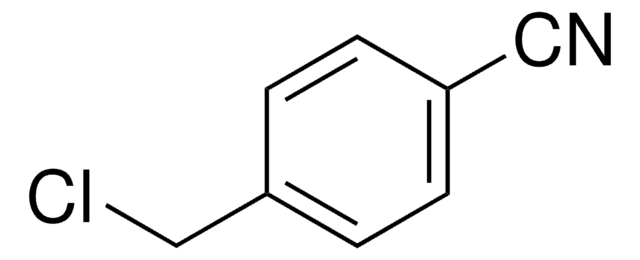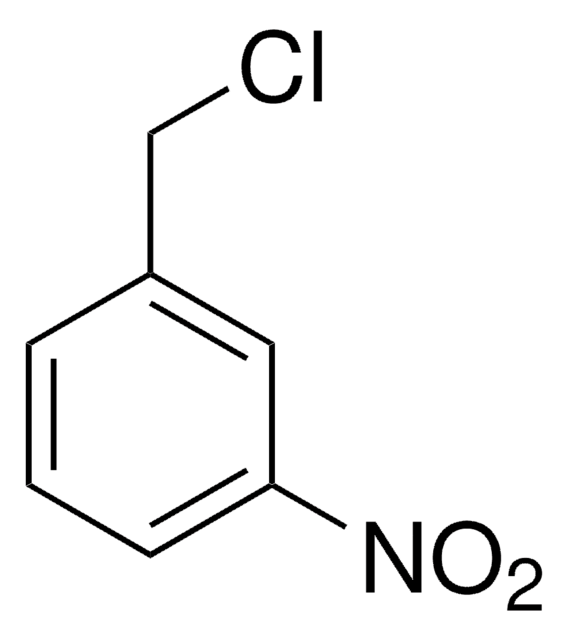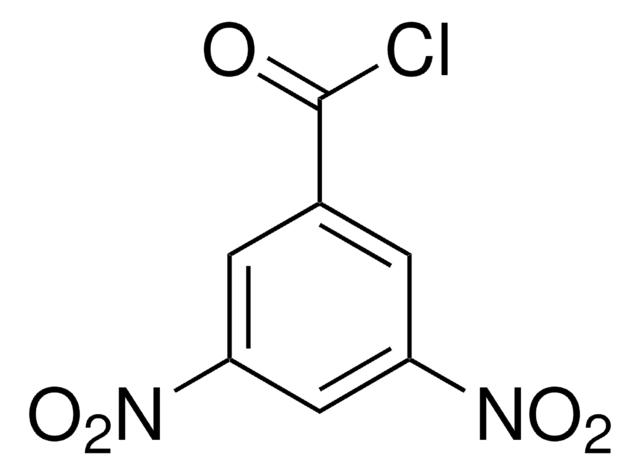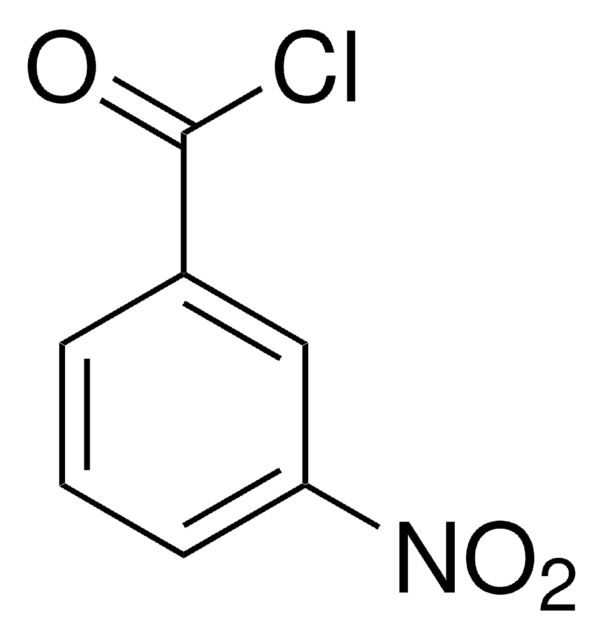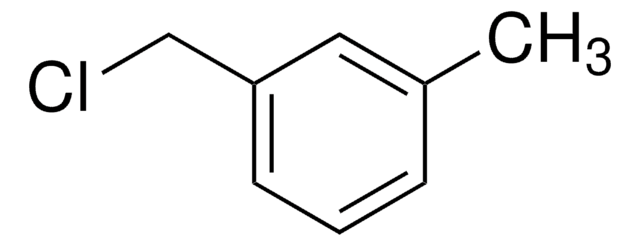140112
4-Nitrobenzyl chloride
99%
Synonym(s):
α-Chloro-4-nitrotoluene
About This Item
Recommended Products
Quality Level
Assay
99%
form
solid
mp
70-73 °C (lit.)
solubility
chloroform: soluble 50 mg/mL, clear to very slightly hazy, faintly yellow
SMILES string
[O-][N+](=O)c1ccc(CCl)cc1
InChI
1S/C7H6ClNO2/c8-5-6-1-3-7(4-2-6)9(10)11/h1-4H,5H2
InChI key
KGCNHWXDPDPSBV-UHFFFAOYSA-N
Looking for similar products? Visit Product Comparison Guide
General description
Application
Signal Word
Danger
Hazard Statements
Precautionary Statements
Hazard Classifications
Acute Tox. 4 Oral - Skin Corr. 1B
Storage Class Code
8A - Combustible corrosive hazardous materials
WGK
WGK 3
Flash Point(F)
Not applicable
Flash Point(C)
Not applicable
Personal Protective Equipment
Certificates of Analysis (COA)
Search for Certificates of Analysis (COA) by entering the products Lot/Batch Number. Lot and Batch Numbers can be found on a product’s label following the words ‘Lot’ or ‘Batch’.
Already Own This Product?
Find documentation for the products that you have recently purchased in the Document Library.
Customers Also Viewed
Our team of scientists has experience in all areas of research including Life Science, Material Science, Chemical Synthesis, Chromatography, Analytical and many others.
Contact Technical Service

